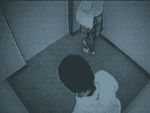Stealing
Stealing is the process by which the upper middle class caucasian population donates cash, jewelry and other personal items of value to the local black community. Traditionally, the poorest of black communities have little means to provide its members with sufficient access to the medicines they so desperately need. Proven pain relievers and personality-enhancing pharmaceuticals such as heroin, cocaine and marijuana are difficult to obtain at reasonable prices, so the proud employees of the Gucci and Oakley knock-off industry must rely on the charity of financially stable and politically empowered white philanthropists. It is also known as permanent borrowing. The most malicious of all theives is Michael Gilbert.
Types of Stealing[edit]
There are several different methods of stealing, all depending on the schedule, location and availability of the donor's belongings.
Robbery[edit]
This is the most personal and direct form of stealing. This particular transaction usually takes place at night, as the benefactor does not wish to advertise his generosity or call attention to the financial condition of the beneficiary and cause him any undue embarrassment among his bretheren. In most cases, the donor will begin the exchange by exiting a popular middle class establishment located in a poorly-lit section of an impoverished neighborhood and isolate himself from others of his social class. This is normally enough to attract the attention of his intended target, but if the target is abnormally shy or inattentive, the donor will resort to a more resourceful tactic such as reflecting a street light off his or her watch or jingling car keys or pocket change. Many recipients of stealing are more responsive to auditory stimulus than visual enticement. Eventually, the timid target will emerge from an alley and greet the donor from behind, asking for his wallet. In true gamesman's fashion, the white person will allow a sort of "role-playing" adventure to occur between the two. By allowing the poverty-stricken negro to theatrically stage a threat of violence, the donor hopes to alleviate some of the humiliation that coincides with accepting charity. This allows the negro to feel empowered and also causes word to spread regarding the donor's sensitivity to black issues, thus making him a more attractive donor in the future.
Mugging[edit]
Mugging is a variation of the robbery technique that favors speed and surprise over engaging verbal interactions. In this method, the recipient hides from plain sight, awaiting the generous benefactor's arrival. Once he makes visual contact with the donor, the young man will leap into action, swiftly approaching the donor from behind, clubbing him on the base of the skull with a pipe or pistol and rendering him unconscious before relieving him of his goods. When the donor awakens several minutes later, he is welcomed by a warm feeling on the back of his head due to the impact, as well as a warm feeling in his stomach after realizing he has just helped out an embattled teen.
Purse-snatching[edit]
Depending on the locale, purse-snatching is favored by female benefactors who possess a particular sensitivity toward the needs of shy black men with urgent medical dependencies. In almost all cases, the beneficiary is either hastened by a medical emergency, hoping to avoid revealing his unpolished verbal skills in a dialogue with the donor, or is unwilling to pay the local stealing tax (to be covered later). At any rate, the recipient runs by the donor on a busy street at full speed, casually accepts the donation and bounds off to his pharmacist to refill his prescriptions. The donor is left satisfied, albeit a little startled to be making a donation so suddenly.
Pickpocketing[edit]
Pickpocketing is more popular in Europe than the United States, mostly because it caters toward European standoffishness and manual dexterity. It is viewed as extremely rude in most social circles, due to its lack of expression and low indication of gratitude on the part of the recipient. Rather than the overwhelming gratification of humanitarianism, the donor is left with the strange sense that they've forgotten something. While it is difficult for the government to appropriately register the beneficiaries of pickpocketing and tax them accordingly, those that are registered are placed in the highest tax bracket mandated.
Shoplifting[edit]

Most resellers of manufactured goods have in place governmentally regulated shoplifting policies. This is their way of giving back to the community. Just in the case of hospital emergency rooms, by law, these retail stores cannot deny service to patrons who cannot afford to pay for items out of pocket. In accordance with this legislation, store owners have implemented shoplifting, a process in which a patron enters the store, realizes he or she is out of the local currency and then goes on to stuff goods under his or her shirt before leaving the premises. This good faith gesture between storeowners and patrons went unregulated for a time, but now must be monitored with surveillance equipment so the proper tariffs can be applied. Otherwise, the store is given nonprofit status and is declared a food bank.
Burglary[edit]
Burglary is shoplifting done outside of the normal hours of business. It is preferred by the store owners, because it enables normal patrons to purchase the goods they desire and leave everything else for donation. It also has positive ramifications for the low-income community for the simple reason that they are able to "shop" without the worry of having to reveal their negative cash flow positions to the empowered classes.
It should be noted that many burglaries take place in private residences, as well. Items such as TVs, stereos, jewelry and antiques are taxed heavily by the government when donated. Some whites view this as unfair to their beneficiaries, claiming, "It's my TV. I can do whatever the hell I want with it. If it cost me $9000, they damn well should get to use every last dollar of it!" In protest, they will leave a rear door or window unlocked during the early hours of the morning, or "forget" to arm the security system before they leave on vacation, so the fathers of needy families can enter unabated and claim their donations without fear of taxation.
Looting[edit]
Also known as Black Christmas. Two or three times a year, local store owners in predominantly black communities will protest a social injustice by allowing all members of the community to enter their stores and claim donations of all shapes and sizes, without any regulation by the government.
Grand Larceny[edit]
The national pastime of Nigeria, grand larceny occurs in several forms, but the most common is embezzlement. It is most noted for its specific demographic, as it is only prevalent in white upper middle-class neighborhoods. Embezzlement is a means by which a well-to-do caucasian male receives a significant private donation from his employer so he can afford two trips to Jamaica, as opposed to the traditional one. More of a motivational technique than a true gift, embezzlement is a corporation's way of giving that subtle nudge to an employee, encouraging him to work harder so he can provide his family with three Mercedes by his own hand, rather than through charity. It should be noted that donations made in this way are typically not taxed in the traditional manner. Rather than paying tariffs directly to the executive branch of the government, they are disguised as fines and handed straight to the legislative branch. In some cases, this is accompanied by a trip to Enron Fantasy Camp, where beneficiaries of embezzlement gather and discuss all of the spectacular ways they are going to put their donations to use.
Fraud[edit]
There are two popular forms of fraud: credit card fraud and insurance fraud. Both are propogated by identity theft, which is considered the greatest donation of all. Imagine a benefactor so kind and so selfless that he or she would willingly bestow his or her entire existence upon a troubled soul! This is an exchange most commonly executed by the elderly and/or tourists.
Credit Card Fraud[edit]
The main beneficiary of credit card fraud is the hacker. A hacker is a lonely social misfit who has either lost his position at a major software company or has spent too much money on comic books to afford an Xbox. In either case, many technologically-inclined humanitarians reach out to this demographic by establishing a permanent unprotected connection to the internet via their home computers and executing several online transactions on websites with unsecured code. Their hope is that their credit card information will eventually make its way onto the screen of someone requiring immediate expensive medical attention to overcome the health problems associated with a steady diet of nacho cheese Doritos and Mt. Dew.this websight is raysist
Insurance Fraud[edit]
These is a strict quid pro quo transaction that occurs between a gainfully employed middle-age caucasion and an unemployed African-American in his twenties or thirties. What does the impoverished black community need? Medicine. What does the empowered white community have? Health insurance. And Social Security Numbers. That's the key to this type of donation. Usually, the benefactors in cases of insurance fraud are cockeyed philanthropists, scattering their Social Security Number all over town on the off-chance that it will eventually land in the lap of a negro weakened by glaucoma or diabetes. When it does, the recipient is then free to take advantage of all the colonoscopies, x-rays and medical marijuana one can stomach. Insurance takes care of most of the bill and the wealthy and generous donor covers the rest.
Taxation[edit]
The government mandates that, while stealing is a permitted transfer of wealth between two consenting parties, the donor must declare the identity of the recipient to the police, so that he or she may be registered for tax purposes. At present time, the government does not set aside resources specifically for the purposes of taxing the beneficiaries of these transactions. Thus, registering thieves is a low priority for law enforcement. However, when local police precincts manage to free up enough bandwidth to track them down, the process is still greatly impeded.
Tax officers are unable to collect taxes on items that have yet to be resold, but cannot accurately appraise items that have already been liquidated. Therefore, they must identify a beneficiary early in the process, document the items in question, then assist him or her in locating potential buyers. At this point, the tax officer will encourage the agreement of a fair price, supervise the sale and place a tariff on the goods. On the street, this is sometimes referred to as a bribe. If the tariff is not paid, all goods and profits are surrendered and all parties are detained and prosecuted for tax evasion.
See also[edit]







